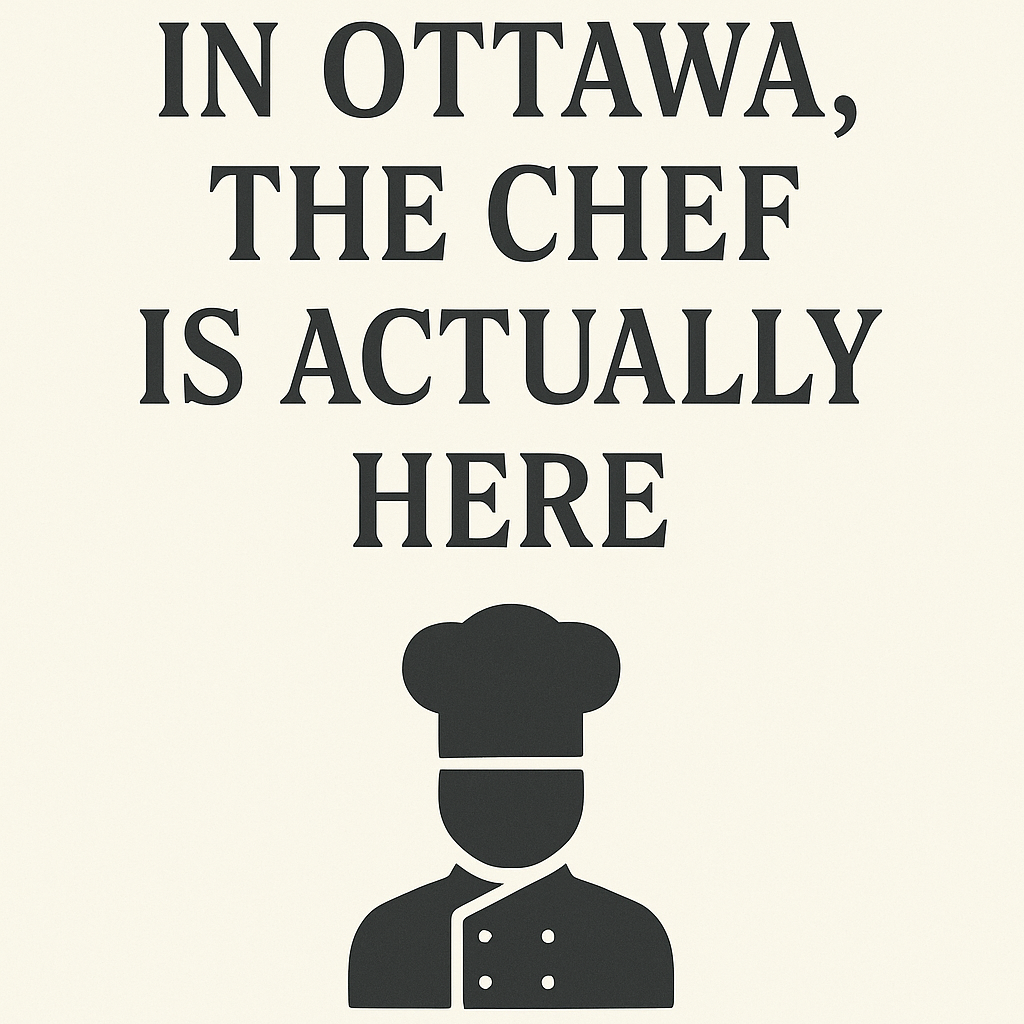In Ottawa, the Chef is Actually Here

In the major dining capitals, it’s almost a given: the chef whose name is on the door isn’t the one behind the stove. Toronto, New York, Montreal—these cities run on the cult of personality. The chef is a brand, the restaurant a satellite orbiting that brand. Diners buy into the myth, not necessarily the presence. You might catch a glimpse of them shaking hands in the dining room, but odds are the actual cooking is left to a team of sous chefs and line cooks following a playbook.
That model has its upsides. It allows chefs to grow empires, scale their influence, and build networks that pull a city into the international spotlight. But there’s also a cost: the food can feel less personal, less immediate. You’re not eating the dish as the chef imagined it—you’re eating a facsimile, the tenth reproduction of an original idea that may have been sketched months ago and replicated by others ever since.
Ottawa, for better or worse, runs differently. Here, the chef on the menu is usually the chef on the line. This isn’t a city of celebrity restaurateurs with TV slots and sponsorship deals; it’s a city where most chefs still cook. Night after night, they’re the ones at the pass, tasting sauces, adjusting seasoning, plating dishes. Diners get a version of the food that’s closer to the source—less filtered, less translated through layers of staff.
That might sound unremarkable until you travel elsewhere and notice the gap. In New York, the chef might be at a book signing in Paris while their kitchen churns through 200 covers. In Ottawa, the chef is far more likely to be there, sweating over the details. It gives the food a weight of presence, a sense that the person who conceived the dish is also the one ensuring it lands the way it should.
It’s not that Ottawa is immune to expansion. A handful of chefs here juggle multiple concepts, some with more success than others. But compared to larger cities, it’s rare to find a restaurant where the figurehead is absent for weeks on end. Part of that comes down to scale—Ottawa isn’t an empire-building city. But part of it is cultural. The chefs who stay rooted in their kitchens create restaurants that feel less like businesses and more like studios: workshops where the chef is a craftsperson, present and engaged in the work.
There’s also an intimacy to it. Diners in Ottawa aren’t just buying into a reputation; they’re buying into the craft of a person who is actually there. The food carries fingerprints, not just formulas. Even if you never meet the chef, there’s a reassurance in knowing they’re nearby, shaping the experience. In a dining landscape where “chef-driven” often means little more than a name on the awning, Ottawa’s version is closer to the literal truth.
It doesn’t make headlines in glossy magazines. It doesn’t always attract the hype. But it does something better: it grounds the city’s restaurants in authenticity. Ottawa’s chefs might not always be the loudest voices in Canadian dining, but they are, more often than not, present in their kitchens, feeding their city directly. That presence is a quiet luxury, one that larger dining scenes—with all their noise and shine—often forget to value.
